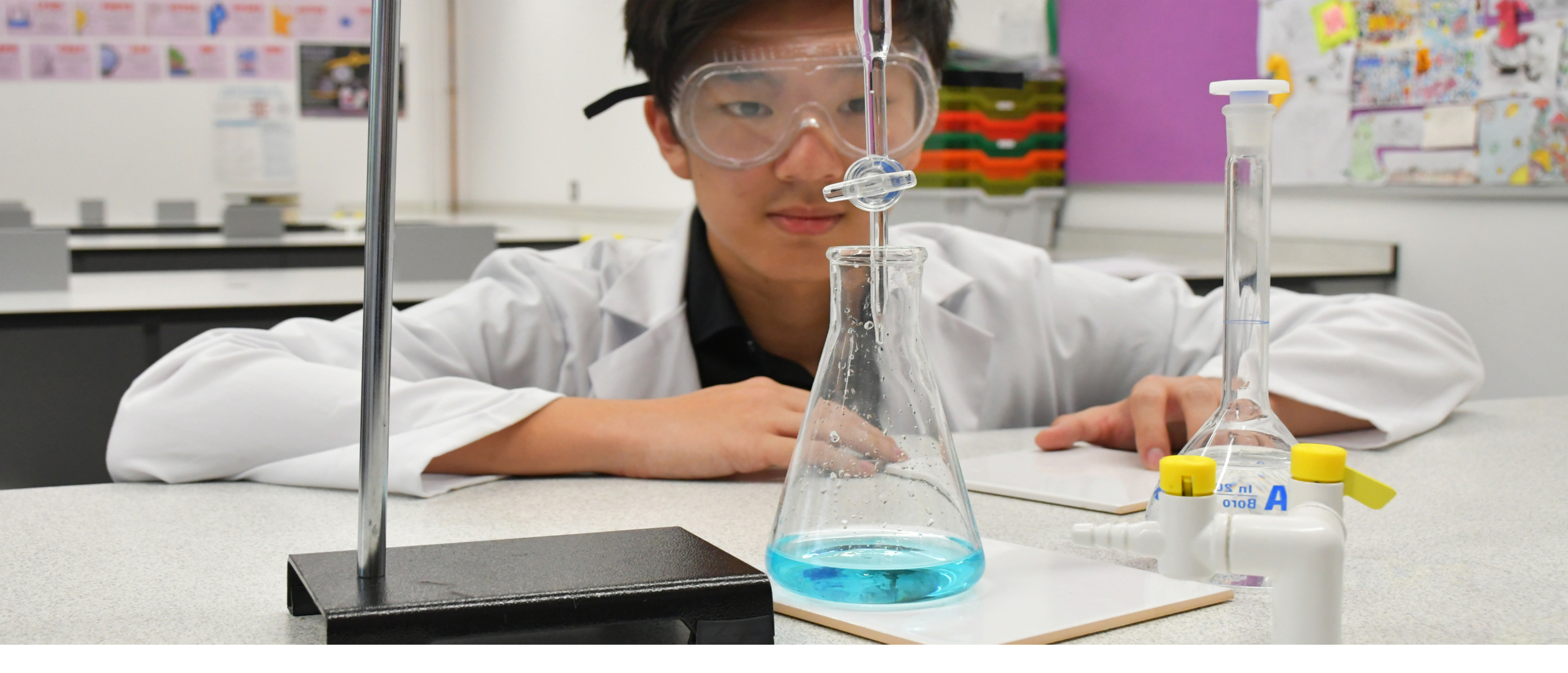Chemistry A level
A qualification in chemistry opens doors to a wide range of careers. Chemistry is involved in our everyday lives and there is a vast range of jobs and careers open to those who have studied chemistry at any level; great career opportunities exist both inside and outside the lab. Nobody knows what the jobs of the future will look like, but many of them will be created in chemistry to solve global challenges such as human health, energy and the environment.
Why should I study chemistry?
“As well as practical knowledge of the subject, chemistry students develop many other skills prized by employers such as problem solving, numeracy, communication, creativity and data analysis. Gaining these skills means that you can have a future in all sorts of careers from finance to public relations.”
(from http://www.rsc.org/careers/future/career-options)
What will I study?
Advanced GCE Chemistry enables students to:
- Develop understanding of fundamental concepts such as electronic structure, arrangement of particles, chemical bonding all related to the physical and chemical properties of substances
- Develop expertise in writing formulae and equations, and become proficient in chemical calculations to determine yield of products depending on the amount of reactants.
- Extend understanding of organic chemistry to cover a range of functional groups and their reactivity and mechanisms.
- Enhance practical laboratory skills through experiments
Which exam board specification will I use?
We will be using the AQA specification for A level Chemistry (7405)
How will I be assessed?
The A Level Chemistry will be linear qualifications – there will be a final written external assessment that will take place at the end of the two year course.
You will sit 3 papers, each paper is to be completed in 2 hours.
Paper 1 – Inorganic and Physical, 105 marks of short and long answer questions (35% of total grade)
Paper 2 – Organic and Physical, 105 marks of short and long answer questions (35% of total grade)
Paper 3 – Synoptic Paper, 40 marks on practical techniques and data analysis, 20 marks of testing across the specification, 30 marks of multiple choice question (for a total of 90 marks and 30% of total grade).
There is also continuous internal assessment of practical activities carried out by the students. Although the actual practicals do not contribute to final grade, questions within written examination papers will aim to assess the knowledge and understanding that students gain while carrying out practical activities. At the end of the 2 year A Level course, based on successful completion of core practicals, a Teacher Assessed Competency Grade will be reported alongside the final grade.
What GCSE grades will I need?
- GCSE Separate Chemistry Grade 6 or above
- GCSE Combined Science Grade 7,6 or above
- GCSE Mathematics 6 or above
Who can I contact for further information?
Mr. L. Morris- Whitehead, Head of Chemistry (l.morris-whitehead@kwschool.co.uk)
Mr Morris Whitehead has over 30 years’ experience of teaching science.
He has been the Head of Chemistry at various outstanding schools in London, all of which achieved above national average passes in A level Chemistry.

